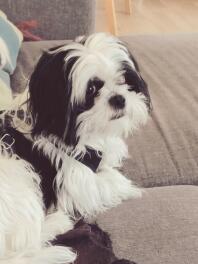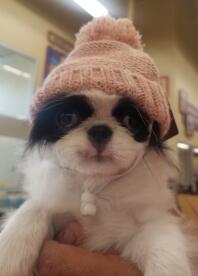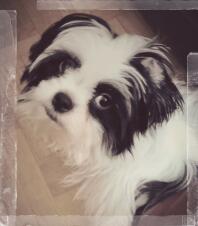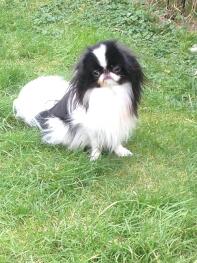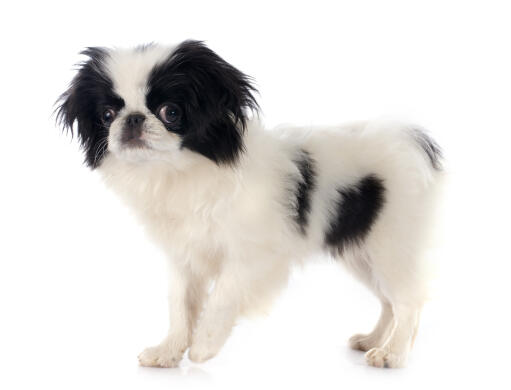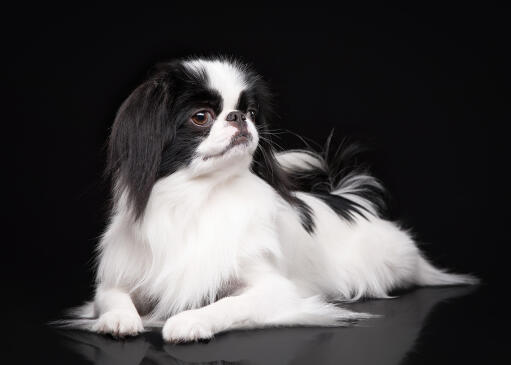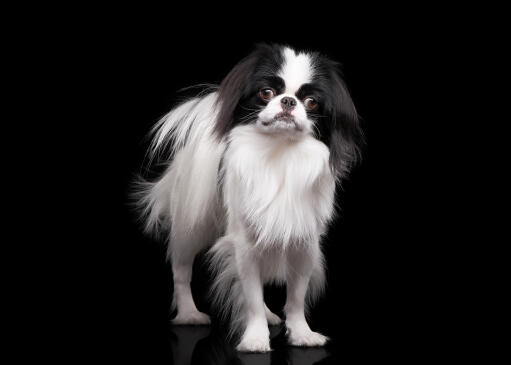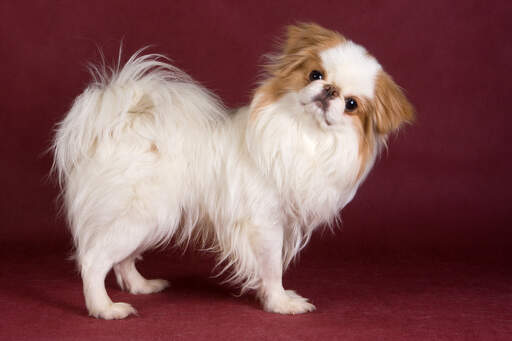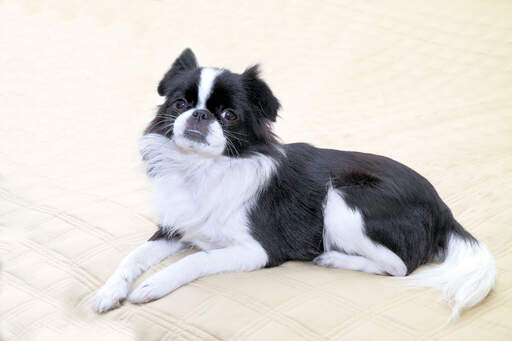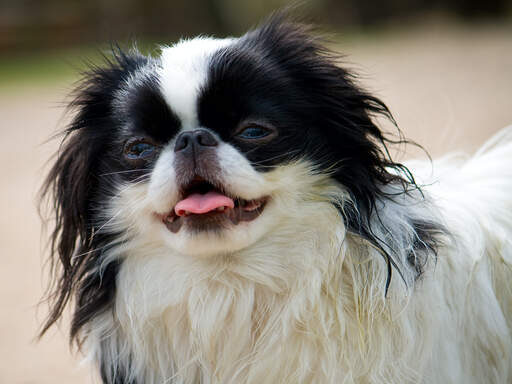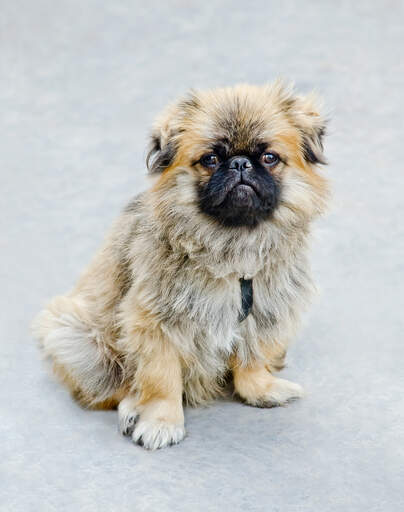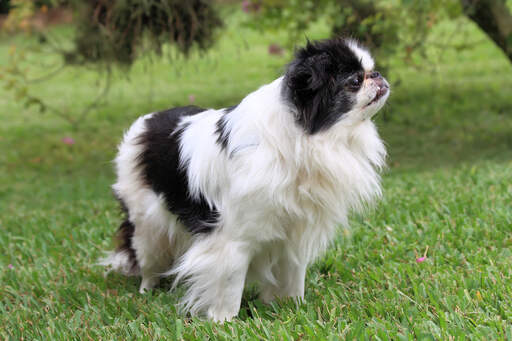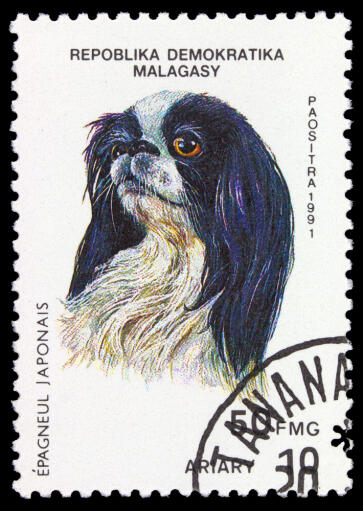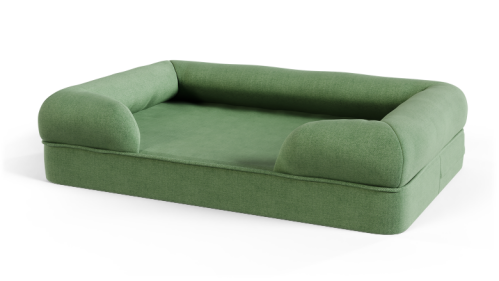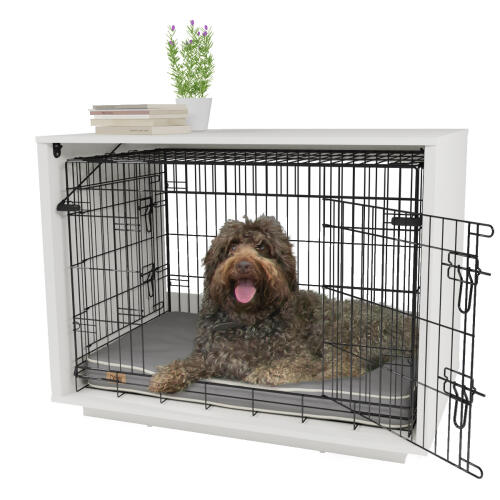Japansk Chin hund









History
The Japanese Chin has been around for centuries and most like originated in China. It is sometimes called the Japanese Spaniel and is thought to have reached the Western world in the 1800's. At one times it was reserved for Japanese nobility only and a 'commoner' would never have been allowed to own one. Each house would breed their own Japanese Chin to their own standard, so many different size and weights were created. Classed as a companion animal, it is one of the few Japanese dogs that didn't have a specific role as a working dog. The American Kennel Club has mentions no precise weight boundaries for showing, but most are around 7 - 9 pounds.
Behaviour
The Chin is very cat like, in behaviour and attitude. They will actually clean their faces with their paws like a cat. They Are friendly with everyone they meet and are a good choice if you have children as they like to play. They will bark when someone is at the door, to alert you, but usually welcome strangers in to the house with few problems. Japanese Chins get along well with other animals if raised with them. They like to be up high and, like a cat, have excellent balance. You'll often find them on the mantlepiece and on bookshelves trying to get the best vantage point.
They are quite intelligent and like to please you, but can be stubborn and are easily bored. They are entertaining dogs, who will perform tricks if taught. Training in short sessions and making it fun with plenty of attention and praise works well as they love being cuddled and praised. Above all, Chins are people dogs and they need company to thrive. Giving them lots of attention will boost their confidence and will help with training. Repetition will quickly make them lose interest and their minds will wander off in search of something more exciting to do. Anything fun related is the best form of teaching for Japanese Chins, they like being the centre of attention so tricks and games, will be learnt quickly. Harsh words will cause them to dig their heels in and refuse to do anything. They can sometimes 'sing' to their owners.
Chins have low exercise needs and are happy with a walk around the block or a vigorous play session. Their recall is usually good and it is important to socialise them with larger dogs to prevent fear.
Their coat requires a fair amount of time and care. It needs brushing several times a week to keep it in good order, but they rarely need a bath. They are very clean dogs who dislike getting dirty. Due to their small size they might require a winter coat if it gets too cold outside. They have a single coat with no undercoat and can feel the cold. The folds around their eyes and nose will need cleaning with a cotton swab.
Many Chins are allergic to corn, so a special corn free diet should be given to prevent allergies. They have a delicate neck, so a harness should be used when walking to prevent damage. Like many small dogs, they can suffer from Patellar Luxation and Heart Murmurs.
Temperament
Japanese Chins possess a devoted and kind temperament. These are friendly little dogs who are will become immensely attached to their owners. They love to be cuddled on the sofa and played with in the garden. Early socialisation is really important here - not because of any yappy or aggressiveness but so the Chin develops into a confident dog who is happy to meet all newcomers.
Health Problems
Health problems that may affect Japanese Chins include chondrodysplasia (deformed bones), brachycephalic syndrome (breathing difficulties), luxating patella (dislocation of the knee cap), canine hip dysplasia (CHD), eye disease, heart disease, allergies, Atlantoaxial subluxation (inherited defect where neck vertebrae compress the spinal cord and can cause paralysis) and epilepsy.
Breed Details
- Status: Common
- Life Expectancy: 10 - 12 years (sometimes 15+)
- Vægt: 1.4 - 6.8 kg
- Højde: 8 - 11"
- Rare: Nej
- Coat: Medium
- Grooming Requirements: More than once per week
- Town or Country: Either
- Minimum Home Size: Flat
- Minimum Garden Size: No Garden
- Breed Type: Toy Dog
- Størrelse: Lille
- Energy Level: Medium
Billeder af Japanese Chin
